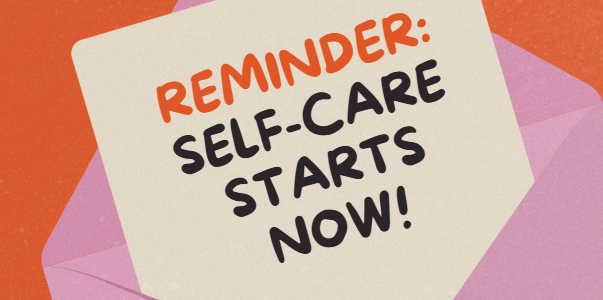Self-Care for Teachers: Sustainable Practices to Prevent Burnout
Teaching is wonderfully rewarding but also demanding. As PreK–12 educators navigate lesson planning, student needs, standards changes, and technology, stress can quietly accumulate. Without intentional self-care, that stress may lead to burnout, reduced effectiveness, and reduced joy in the classroom. In this post, you’ll discover practical self-care strategies, supported by research, that fit teacher life (not over-the-top routines!).
What is Self-Care for Teachers?
Self-care involves actions taken to preserve or improve one’s own health and wellbeing. For teachers, it’s more than spa days. It’s small, sustainable habits built into daily life. These might include setting boundaries, rest and sleep, movement, mindfulness, and coping tools for workplace stress.
Research Evidence
-
According to a study by the American Psychological Association, chronic stress leads to lower job satisfaction and higher turnover in teachers. Regular self-care activities are associated with reduced burnout and higher emotional resilience.¹
-
A 2020 meta-analysis found that mindfulness and short breaks significantly reduced perceived stress among educators, improving job satisfaction and mental health.²
-
Research suggests that consistent sleep (7–9 hours), physical activity, and social support are strong predictors of teacher wellbeing.³
Why Teachers Need Self-Care: Stressors & Factors
Workload and time pressure – Grading, planning, meetings often extend beyond school hours.
Emotional labor – Supporting students’ academic AND social/emotional needs can be draining.
Changing expectations – Technology, new curriculum standards, and policy changes add extra stress.
Pandemic after-effects – Adaptations from COVID have lasting impacts on stress and teaching conditions.
Types & Comparisons of Self-Care Strategies
| Strategy | What It Looks Like | Pros | Limitations / Challenges |
|---|---|---|---|
| Setting boundaries (e.g. designated work hours, saying “no”) | Committing to “no work emails after 7pm” | Helps preserve personal time, prevents overload | Might need to negotiate with administration or culture; may feel guilt |
| Simple rest & breaks | Short walking, reading, micro-breaks during class transitions | Easily implemented; immediate refresh | Hard when schedule is tight or in high-stress periods |
| Sleep hygiene | Regular bedtime, minimizing screens before sleep | Big impact on mood & energy | Challenging with family demands or late prep work |
| Movement & physical activity | Stretching, walking, yoga | Helps with both mental & physical health | Time constraints; access issues |
| Mindfulness & reflection | Journaling, meditation, breathing exercises | Boosts focus, reduces anxiety | Some may feel unsure how to start or sustain practice |
Practical Applications: Self-Care Tips for Teachers
- Start small: pick one habit (e.g. a 5-minute breathing break) and build from there.
- Schedule it: block self-care time in your calendar like any other commitment.
- Use technology wisely: apps or timers for mindfulness; templates to streamline planning.
- Build a support network: peer check-ins, teacher friends, or online educator communities.
- Reflect regularly: what’s working? What’s draining? Adjust as needed.
Measuring Success & Outcomes
To understand whether your self-care practices are truly making a difference, start by paying attention to changes in how you feel both during and after school. Notice whether your energy levels remain more stable through the day, rather than crashing after classes or long workdays. Reflect on your sleep: are you sleeping more hours? Is your sleep more restful and uninterrupted? Also observe your mood and stress. Keeping a brief daily journal or using short self-report surveys can reveal shifts, good or bad, in how stressed or emotionally drained you feel. Another signal is health. How often you are absent due to sickness, or do you experience feelings of emotional exhaustion. Finally, consider your overall job satisfaction and teaching enjoyment. Do you look forward to going into the classroom? Are you feeling more satisfied with your teaching, more resilient in tough moments?
Key Takeaways
Self-care is essential, not optional, for long-term health, effectiveness, and happiness in teaching. You won’t need dramatic changes or perfect routines; often, the small, sustainable habits (a short walk, setting a boundary, a mindfulness break) matter far more. Multiple dimensions like quiet rest, movement, relationships, mindfulness, and clear boundaries each play a role in helping teachers maintain wellbeing. And perhaps most importantly, reflection and adjustment is the practice that keeps self-care working. What works at one time may not at another. Be willing to tweak and change your habits as this is part of sustaining them over time.
Need flexible professional development? Professional Learning Board offers 100% online, self-paced courses designed for busy educators. Browse the course catalog.
Please subscribe to our newsletter at https://renewateachinglicense.com/newsletter/ for exclusive discounts, free PD resources, and the latest continuing education course highlights.
 About the Author
About the Author
Ellen Paxton is a respected expert in education and best known as the Chief Learning Officer of Professional Learning Board. As a two-time National Board Certified Teacher, Ellen has successfully published and customized online professional development courses and Learning Management Systems for 20 years to help teachers meet their state continuing education renewal credit requirements. Through ProfessionalLearningBoard.com, RenewaTeachingLicense.com, and ConnectedPD.com. Ellen has established solutions and maintained partnerships with several accredited universities, higher education institutions, teachers’ unions and state Departments of Education while setting strategic direction that makes a difference and overseeing implementation of popular online PD.
This post was initially published in 2022, rewritten in 2023, updated December 2024 and again September, 2025.
Research Citations
Ortan, F., Simut, R., & Simut, C. (2021). Self-Efficacy, Job Satisfaction and Teacher Well-Being in the K-12 Educational System. International Journal of Environmental Research and Public Health, 18(23), Article 12763. https://doi.org/10.3390/ijerph182312763 MDPI
Zhou, S., Slemp, G. R., & Vella-Brodrick, D. A. (2024). Factors Associated with Teacher Wellbeing: A Meta-Analysis. Educational Psychology Review, 36, Article 63. https://doi.org/10.1007/s10648-024-09886-X SpringerLink
Frontiers in Psychology. (2023). On the outcomes of teacher wellbeing: A systematic review. Frontiers in Psychology. https://doi.org/10.3389/fpsyg.2023.1205179 Frontiers
Calumno, F. J. V., Yazon, A. D., Tan, C. S., Bandoy, M. M., & Buenvinida, L. P. (2022). Regression of Self-care Practices on Reducing Burnout among Public High School Teachers in Laguna, Philippines. ORCADEV, 1(2), 76-90. DOI: 10.31098/orcadev.v1i2.1092 pdfs.semanticscholar.org

Comments are closed.